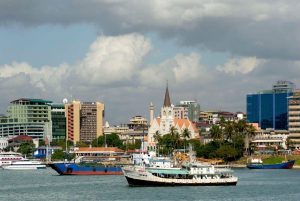The fight against ivory trade picked up momentum after Kenya joined 32 other countries calling for the total ban on the trade.
The 32 countries that include Nigeria, Chad, Rwanda, Ethiopia and Uganda are calling for the listing of the African Elephant from Appendix 11 to Appendix 1 that advocates for the total ban on ivory trade through a campaign dubbed the Ivory Trade is a rip off.
The campaign that is a partnership between the Government, Kenya Airways and Kenya Airports Authority was officially launched on July 31, 2019 by Kenya’s First Lady Margaret Kenyatta and activated on August 1, 2019 by the Cabinet Secretary for Tourism and Wildlife Najib Balala.
Speaking during the activation, Mr. Balala urged industry players in the government and private sector to collectively fight against wildlife trafficking.
“This war against wildlife trafficking cannot be fought alone, we call upon all the relevant agencies, in government, private sectors and other communities to support this noble cause.” He said.
The campaign, he further said, hopes to sensitise the public and raise awareness on wildlife trade and trafficking.
The team pledged to each play their part in ensuring the success of the campaign and bringing an end to the ivory trade.
Kenya Airways CEO Sebastian Mikosz said that during the campaign, the national carrier will produce branded boarding passes with codes which once scanned will direct customers to Ministry of Tourism’s website where customers using the airline and its partners can get all information to support wildlife protection.
KAA Chairman Mr. Isaac Awuondo stated that KAA would not relent on the illegal ivory trade adding that KAA was the first Airport in Africa to sign the United Buckingham Palace Declaration – an international initiative – that commits players in international transport supply chain, mainly airports, airlines, logistics and shipping companies, to collaborate in the fight against the wildlife trafficking.
On their part, KWS has enhanced surveillance in all entry and exit points. KWS will also run an exhibition in August to sensitise the travelling public on illegal wildlife trafficking.
Kenya has been at the forefront for years in the fight to curb the scourge. Heavy jail terms and penalties for people found guilty of the crime has acted as a deterrent. In July 1989, retired president Daniel Arap Moi ignited a pile of 12 tonnes of elephant tusks and helped change global policy on ivory exports.
Shortly after, the trade was banned under the Convention on International Trade in Endangered Species. This recent move in this fight is the biggest one as it incorporates some big names on the travel and tourism sector and other countries as well.



